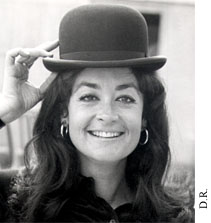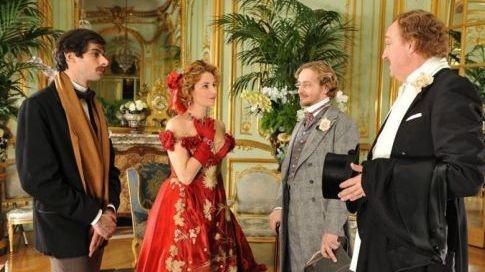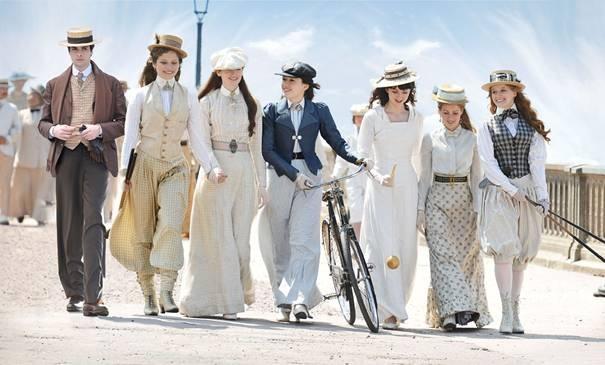

 字體:小 中 大
字體:小 中 大 |
|
|
|||||||||||||||||||||||||||||||||||||||||||||||||||||||||||||||||||||||
| 2011/09/19 23:54:56瀏覽1459|回應0|推薦3 | |||||||||||||||||||||||||||||||||||||||||||||||||||||||||||||||||||||||
 導演 導演Google翻譯   The search of lost time Nina Companeez What impact the two episodes of "The Search of Lost Time", produced for television by Nina Companeez, can they have on a young audience, that is the question that may arise after being viewed. Yes, Nina Companeez no lack of nerve to be brought to the screen one of the literary masterpieces of the twentieth century into two periods of two hours each, restricting the work to a minimum, and n ' offering to do a series of short scenes with no timeline condemning this monument to a mere trickle. Certainly there are fine scenes, the director who had the financial means to make a reconstruction of the sets and costumes very successful, but it stops there, because if the stage is set or the characters or the essence of the novel does are truly present, especially in the first episode. And how could they be? It does not make a philosophical reflection on time, involuntary memory, images of Epinal, this is not possible and you can not make the grade in a few hours so subtle, so complex a work of this size. We know that a great filmmaker had planned to make this transposition, Visconti, but he abandoned the project, as Raoul Ruiz summed up so often clumsy Time Regained, as it would have been better to stay there, Research do not lend themselves to an adaptation of its scope and content. The work of Marcel Proust is above all chiseled sentences, a symphony of words, a philosophical depth, solid construction and a cast of characters that are barely sketched here, turning quickly to caricature and preciousness. Finally it is a colossal work of more than 3000 pages is thus collected into a series of paintings mostly pleasant but does give the search than fast food gives the large kitchen, with just a front taste. After a disappointing first episode where the narrator takes the place of Proust himself, which is a profound mistake, the search is a novel in itself and not the biography of its author, the second episode stands out is an achievement that more attention to the text and gives us a few tasty bits or moving, especially at the end, with ferruginous shivering of the little bell that announced the arrival of Swann and the character of Albertine adorably portrayed by the young actress Caroline Tillett. But nothing remains, apart from a nostalgic or cruel, what is the foundation of the work, the pages of wonderful childhood, the maternal kiss and anxiety of the little boy watching the arrival of its mother, the importance of art, which is more than life, and whose short dialogue in the studio of Elstir gives us no idea of Proust considerations about the Dreyfus Affair that are not even mentioned, no more than 14/18 on the war, and finally the importance of imagination in everyone's life and the pages devoted not only to praise the beauty and phenomena of involuntary memory, but the requirements of intelligence and morality, as it is true that the search is part of a redemptive art pulling the man to his mediocrity. This realization of Nina Companeez, which is certainly not devoid of qualities, she will give our youth the desire to immerse themselves in Proust's work? I'm not convinced, for the simple reason that the character of the narrator seems all the more shifted in the film he is played by actor Micha Lescot in too inhibited, too sick, we impose the presence invasive of a timorous, shy and stuck at the very least, speaking little and having no material, no relief, while the young Proust was brilliant, gay, funny, and that the art of conversation was a partner in exceptional . This is not apparent in the film, simply because by giving the author the role of the narrator, it makes the flawed work, hence the paradox of being a back that is not completely is the narrator of the novel, not quite the writer Marcel Proust. Thus it reduces the film this search to a picture book pleasing to the eyes, but where the mind is absent, the 7th Art is an art different from the literature and rendering of the image rendering different words . I will not take for example the death of the grandmother that the picture deals with a unilateral, while that reported by the literary work meets the vision that everyone can have and it allows all the freedoms of thought and interpretation. This difference is crucial. Where the film requires, the literature suggests. So that these two episodes only lead to narrow the search in the register of snobbery of a decadent aristocratic society, relationships that develop with the upwardly mobile bourgeoisie and homosexuality, resulting in some scenes eye-catching and not presenting a vision of Proust beautifully nostalgic. Armelle BARGUILLET  Country:FranceLanguage:FrenchFilming Locations:Cabourg, Calvados, FranceDirector:Nina Companeezast (in credits order)
| |||||||||||||||||||||||||||||||||||||||||||||||||||||||||||||||||||||||









